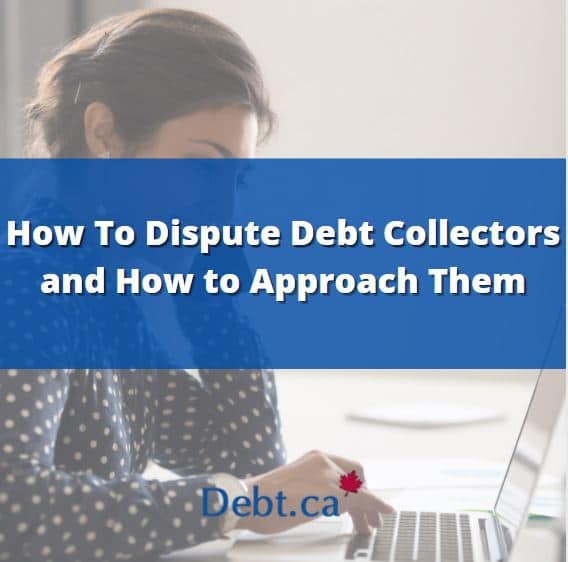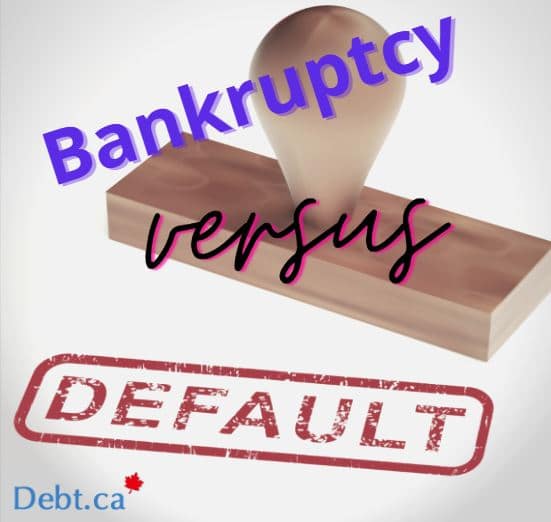When dealing with a debt collector, it’s easy to feel anxious every time the phone rings. In fact, that stress contributes to debt denial, which might lead someone to simply ignore the phone call (we don’t recommend this). Debt collection agencies collect a variety of unpaid debts, including credit card debt, personal loans, business loans, and more. Once your debt goes to a collections agency, your credit score decreases.
If you owe money to creditors and you don’t pay that debt, a creditor might hire a debt collection agency to collect the debt. Before the agency contacts you, they’re required to send you a written notice that your creditor transferred the debt.
The notice should include the:
- Name of the debt collection agency
- Amount owed
- Name of the original creditor, the person or business you owe money to
What if that written notice lists a person that you’ve never owed money to? Or if it lists an amount that’s much higher than what you actually owe? Debt collectors aren’t immune to error. If you notice any inconsistencies, you have every right to dispute the debt collector. So here’s how to dispute and deal with debt collectors.
What to Do If The Debt Isn’t Yours
If you don’t owe money to a creditor identified by the debt collector, there might be an error. Additionally, if the name or company listed on the debt doesn’t match your own, that certainly indicates an error. Here’s what you should do if the debt isn’t yours:
- Order your credit report
- Review it to see if the identified debt appears
- Check for errors on your credit report, and ask the credit bureau to remove inaccurate information
- Inform the debt collector of the mistake
- Talk with the creditor to find out how to correct the error
How to Dispute the Debt Amount
If you think you don’t owe the debt outlined in your notice, you have every right to dispute the debt. Or, if you think the principal amount or interest rate is too high, you can dispute that too.
Here’s what you should do to dispute a debt:
Ask for more information – in writing!
Debt collection agencies must provide a breakdown of the debt if you request more information. Learning more about the debt might shed some light on the amount you owe. You might realize that you don’t need to dispute the debt. Always request proof of the debt and information in writing.
Evaluate Timing
Most debts disappear from your credit report after 6 years. If a debt collector is calling about debt that’s over 6 years old, it might not even be on your credit report anyway. Consider the timing of the debt collector’s call before deciding to pay or dispute a debt.
Inform the collection agency and original creditor that you plan to dispute the debt
Make sure you inform them through a medium that gives you proof of notification, such as registered mail, fax, or email. Include any documentation that you think will support your dispute case. However, make sure the documents are copies, not originals. You might not get the documents back.
Keep track of any communication you have with the debt collection agency and creditor
Keep note of any continuing calls or correspondence that take place after you sent your notice to dispute the debt. Order your phone records, take photos of your incoming calls, and save any emails or letters. Under the Collection and Debt Services Act, a debt collection agency cannot contact you without your consent if you’ve provided notice that you will dispute the debt. You can file a complaint with the Ontario Ministry of Government and Consumer Services if the agency is breaking the law.
Take it to Court
If you’re unable to dispute the debt and resolve the issue with the agency, consider taking the matter to court. This might entice the agency to offer you a deal; however, you should fight the debt in court if it truly isn’t yours.
Review Your Consumer Rights
Dealing with debt collectors is stressful. Even worse, some people aren’t aware of their consumer rights when dealing with debt collectors. Make sure you’re aware of your rights to ensure you’re not taken advantage of. Some of those rights state that debt collectors cannot:
- Share details about your debt with others
- Contact you at work if you request that they contact you through another medium, either via email or another phone number
- Charge debt collection fees
- Initiate legal action against you if the debt has been in arrears for two years or longer
Conclusion
Debt collectors aren’t infallible, so make sure you review any information they share with you regarding debts you owe. Now that you know how to dispute debt collectors and your rights, you have to power to do something about it. Paying your debts as soon as possible helps ease collection calls; however, you shouldn’t pay debts that aren’t yours. If you’re struggling to pay off debt and debt collections agencies keep calling you, consider speaking to a credit counsellor today.








